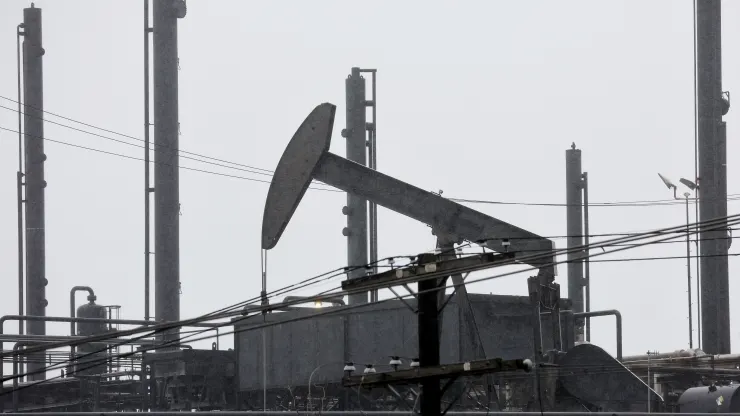Oil prices rose modestly in early trade on Monday after sliding to eight-month lows last week weighed down by a surging U.S. dollar and fears sharp interest rate hikes globally would spark a recession and hit fuel demand.
The dollar index climbed to a fresh 20-year high on Monday, capping oil price gains.
Brent crude futures were up 17 cents, or 0.2%, at $86.32 a barrel at 0116 GMT, while U.S. West Texas Intermediate (WTI) crude futures were up 21 cents, or 0.3%, at $78.95 a barrel. Both contracts slumped around 5% on Friday.
Analysts said crude should find some support as Russia reinforces troops for the war on Ukraine and European Union sanctions on Russian oil are set to take effect in December.
“This is really the big question mark for oil in forecasting the next few quarters — how do weaker demand projections weigh up against EU sanctions,” said Commonwealth Bank analyst Vivek Dhar who had expected Brent to head back toward $100 a barrel in the fourth quarter.
“It’s still going to be challenging for the market to find that oil to replace Russian supply,” Dhar said.
With prices plunging, attention will turn to what the Organization of the Petroleum Exporting Countries and allies led by Russia, together called OPEC+, may do when they meet on Oct. 5, after agreeing to cut output modestly at their last meeting.
“The sell-off could see OPEC intervene again,” ANZ Research analysts said in a note, pointing to remarks by Nigeria’s oil minister, Timipre Sylva, saying OPEC would consider output cuts as current prices were hurting the budgets of some members.
But given that OPEC+ is producing well below its targeted output, any announced cut is unlikely to have much, if any, impact on actual supply.
“I don’t think it’s going to be the game changer,” Dhar said.
Data last week showed OPEC+ fell short of its output target by 3.58 million barrels per day in August, a bigger shortfall than in the previous month.

